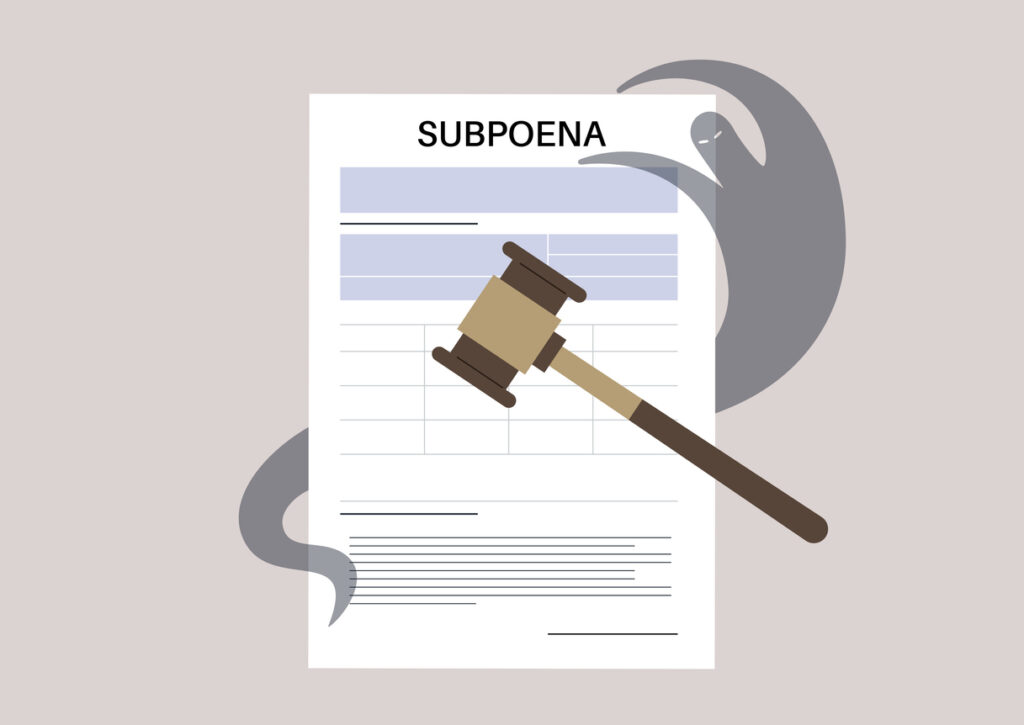When a business or individual receives an administrative subpoena from the Office of Foreign Assets Control (OFAC), the pressure to act quickly can be overwhelming. However, rushing to respond without consulting an administrative subpoenas lawyer often results in costly missteps. These subpoenas—issued under 31 C.F.R. § 501.602—carry significant legal weight and are typically part of broader sanctions investigations. Failing to recognize their complexity or underestimating the implications can invite steep penalties, even if the violation was unintentional.
An administrative subpoenas lawyer is essential for navigating the obligations, timelines, and nuances that accompany these federal demands. Yet many recipients—especially small businesses—try to handle them independently, not realizing that doing so may increase legal exposure. To avoid irreversible damage, it’s critical to understand the top errors individuals make when responding without a legal advocate.
Misunderstanding the Scope of the OFAC Subpoena
One of the most common and dangerous missteps is misreading the scope of an OFAC subpoena. These documents often request “all documents and communications” related to a certain transaction, person, or timeframe. Without the guidance of an administrative subpoenas lawyer, recipients may over-disclose, under-disclose, or fail to understand what OFAC is really asking for.
OFAC subpoenas are often phrased broadly and may appear to request more than they legally can. An administrative subpoenas lawyer reviews the language carefully, ensuring that the response is both complete and appropriately limited. Over-disclosure can create new liabilities, while under-disclosure may be treated as obstruction or non-compliance.
Providing Incomplete or Contradictory Information
When business owners or compliance officers respond to an OFAC subpoena without a structured legal strategy, their submissions often contain inconsistencies or gaps. This is particularly risky if the subpoena is connected to an ongoing investigation or audit. Providing contradictory responses—even unintentionally—may lead OFAC to question the integrity or accuracy of the submission.
An administrative subpoenas lawyer plays a key role in ensuring that all information submitted aligns with known facts, internal records, and any prior communications with government agencies. Proper legal review helps avoid statements that could later be used to justify enforcement actions.
Failing to Assert Legal Privileges
OFAC subpoenas require disclosure of relevant records and communications—but not everything in a business’s files must be turned over. Communications protected by attorney-client privilege or legal work product are exempt. Unfortunately, individuals who respond without an administrative subpoenas lawyer often overlook these protections and hand over sensitive documents unnecessarily.
An administrative subpoenas lawyer identifies privileged content and ensures it’s appropriately withheld with a proper privilege log. This protects the respondent’s legal position while maintaining full compliance with OFAC’s procedural expectations.

Ignoring OFAC’s Enforcement Philosophy and Mitigation Guidelines
Many recipients treat an OFAC subpoena like a routine record request rather than a prelude to enforcement. This oversight can be costly. OFAC uses subpoenas not only to collect evidence but also to assess the subject’s attitude, cooperation, and compliance culture. Submitting a defensive, disorganized, or non-transparent response signals resistance, not compliance.
An administrative subpoenas lawyer understands the enforcement guidelines issued by the U.S. Department of the Treasury and crafts responses that reflect a sincere effort to cooperate. OFAC takes these signals seriously when determining whether to impose civil penalties or close the matter with a cautionary letter.
Missing Deadlines or Failing to Request Extensions Properly
OFAC subpoenas come with strict deadlines. Missing one without proper communication can lead to automatic penalties or be construed as a refusal to comply. Businesses often assume extensions are freely granted, but improperly filed requests—or none at all—can worsen the situation.
An administrative subpoenas lawyer manages the entire timeline, including drafting detailed extension requests supported by valid reasons. These requests must align with OFAC’s rules, demonstrate good faith, and be submitted well in advance of the deadline. Without legal support, these procedural tasks are often mishandled.
Why These Mistakes Often Compound Over Time
One of the overlooked realities in responding to an OFAC subpoena is how quickly one small mistake can escalate. A minor inconsistency in one document may lead to follow-up questions, which, if answered incorrectly, lead to broader scrutiny. The more back-and-forth occurs without legal oversight, the more the business risks deepening its liability. Every submission to OFAC creates a written record that may later be used in enforcement proceedings.
An administrative subpoenas lawyer monitors all correspondence, ensuring consistency in tone, accuracy in facts, and protection of the client’s legal interests. This holistic oversight keeps responses aligned with both the law and strategic positioning.

Legal Interpretation Is Not Optional
OFAC regulations are layered, referencing both statutory authority and decades of enforcement precedent. Misinterpreting terms like “facilitation,” “deemed exports,” or “blocked property” can result in disclosures that are either insufficient or self-incriminating. Responding without a lawyer often means relying on literal reading, rather than understanding legal meaning.
A qualified administrative subpoenas lawyer interprets these terms based on regulatory definitions and enforcement context. That interpretation often makes the difference between a manageable investigation and an escalated enforcement action.
The Role of Internal Investigations and Legal Validation
Some businesses attempt to conduct internal reviews before responding to a subpoena. However, internal findings are only useful if they are comprehensive, accurate, and legally sound. Without a lawyer’s guidance, the review process may be flawed or biased—especially if the issue touches on employee misconduct or third-party compliance.
An administrative subpoenas lawyer oversees internal fact-finding, determines which documents are relevant, and confirms that all disclosures reflect a complete and balanced picture. They also help clarify any discrepancies before they become problematic.
Regulatory and Enforcement Trends Matter
OFAC’s approach to enforcement evolves over time. What was acceptable in one year may be penalized in another. For example, OFAC has recently increased scrutiny over cryptocurrency transactions and supply chain vulnerabilities. If a subpoena touches on such topics, an administrative subpoenas lawyer will be aware of current enforcement priorities and can shape responses accordingly.
Understanding these trends is critical when interpreting the purpose of the subpoena. It helps clarify whether OFAC is seeking clarification, building a case, or conducting a pattern-based investigation. That insight often determines how aggressively to respond—or whether to seek resolution through voluntary disclosure.

How an Administrative Subpoenas Lawyer Minimizes Long-Term Risk
Responding to an OFAC subpoena isn’t just about compliance—it’s also about strategy. Every document, email, and explanation submitted shapes OFAC’s understanding of the case. The legal consequences of this response can extend far beyond the subpoena itself, affecting licenses, future audits, and even reputational risk.
An administrative subpoenas lawyer helps control that narrative, ensuring that each element of the response is consistent, legally sound, and strategically designed to reduce exposure. Businesses that engage legal counsel early often fare far better than those that delay or go it alone.
Working With an Administrative Subpoenas Lawyer From the Start
Too many businesses wait until after a mistake is made to seek legal help. By that point, the opportunity to frame the initial response—and to avoid raising unnecessary red flags—may be lost. In contrast, hiring an administrative subpoenas lawyer at the outset allows for a structured, protected, and informed approach to OFAC compliance.
For more insight into how to navigate OFAC inquiries safely, see this resource on administrative subpoenas lawyer support and review the key regulatory standards published by the U.S. Treasury Department.

Final Thoughts on Avoiding Critical Errors in OFAC Responses
The penalties associated with OFAC enforcement are steep, and ignorance of procedural requirements offers no defense. Whether you’re a multinational corporation or a small domestic entity, responding to a subpoena without proper legal interpretation is a gamble. Each of the mistakes discussed—from misreading scope to missing deadlines—can compound the consequences.
With the guidance of an administrative subpoenas lawyer, businesses stand a far greater chance of resolving issues without escalation, protecting their interests, and demonstrating a commitment to lawful conduct. For anyone facing an OFAC subpoena, legal support isn’t a luxury—it’s a necessity.

Leave a Reply